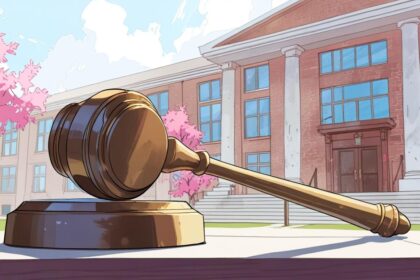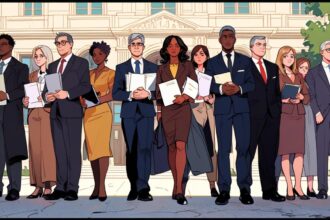As former President Donald Trump faces the first criminal trial against a sitting president on 34 counts of falsifying business records, a set of 42 questions for prospective jurors aims to filter out biases amidst a politically charged atmosphere.
In an unprecedented legal development, former President Donald Trump is gearing up for the first criminal trial against a sitting president, centered on 34 counts of falsifying business records related to hush-money payments. These payments were made to his former lawyer, Michael Cohen, with the purpose of suppressing stories about Trump’s alleged affair with Stormy Daniels. As the trial approaches, with jury selection set to commence on April 15, a New York court has issued a set of 42 questions aimed at prospective jurors. This thorough questionnaire is designed to assess potential jurors’ affiliations with far-right groups such as QAnon and Proud Boys, their media consumption habits, educational backgrounds, and any connections to Trump’s businesses or campaign.
New York Justice Juan Merchan, overseeing the case, has also included questions regarding support for groups like the Oath Keepers, Boogaloo movement, and “antifa.” Additionally, jurors’ preferences towards news sources, including mainstream media like The New York Times and CNN as well as platforms associated with Trump, will be scrutinized in the selection process. This meticulous approach reflects the politically charged nature of the trial and aims to ensure an impartial jury consisting of 18 members.
Despite Trump’s attempts to delay or dismiss the trial, including a recent effort to postpone it citing concerns about bias in heavily Democratic Manhattan, an appeals judge has rejected this request. Trump’s legal maneuvers, including criticisms of Judge Merchan for alleged political bias, have not succeeded in delaying the trial. Moreover, Trump’s request for a delay was also denied by an appeals court, maintaining a gag order that prohibits him from disparaging court officials.
The trial will thus proceed as planned, amidst Trump’s denials of any wrongdoing and his claims of being the target of political persecution. The former president is concurrently facing an array of legal challenges, including a slew of 54 criminal charges and substantial penalties in civil suits. The refusal to postpone the trial further cements Trump’s ongoing legal battle, marking a significant judicial proceeding in American political and legal history.













